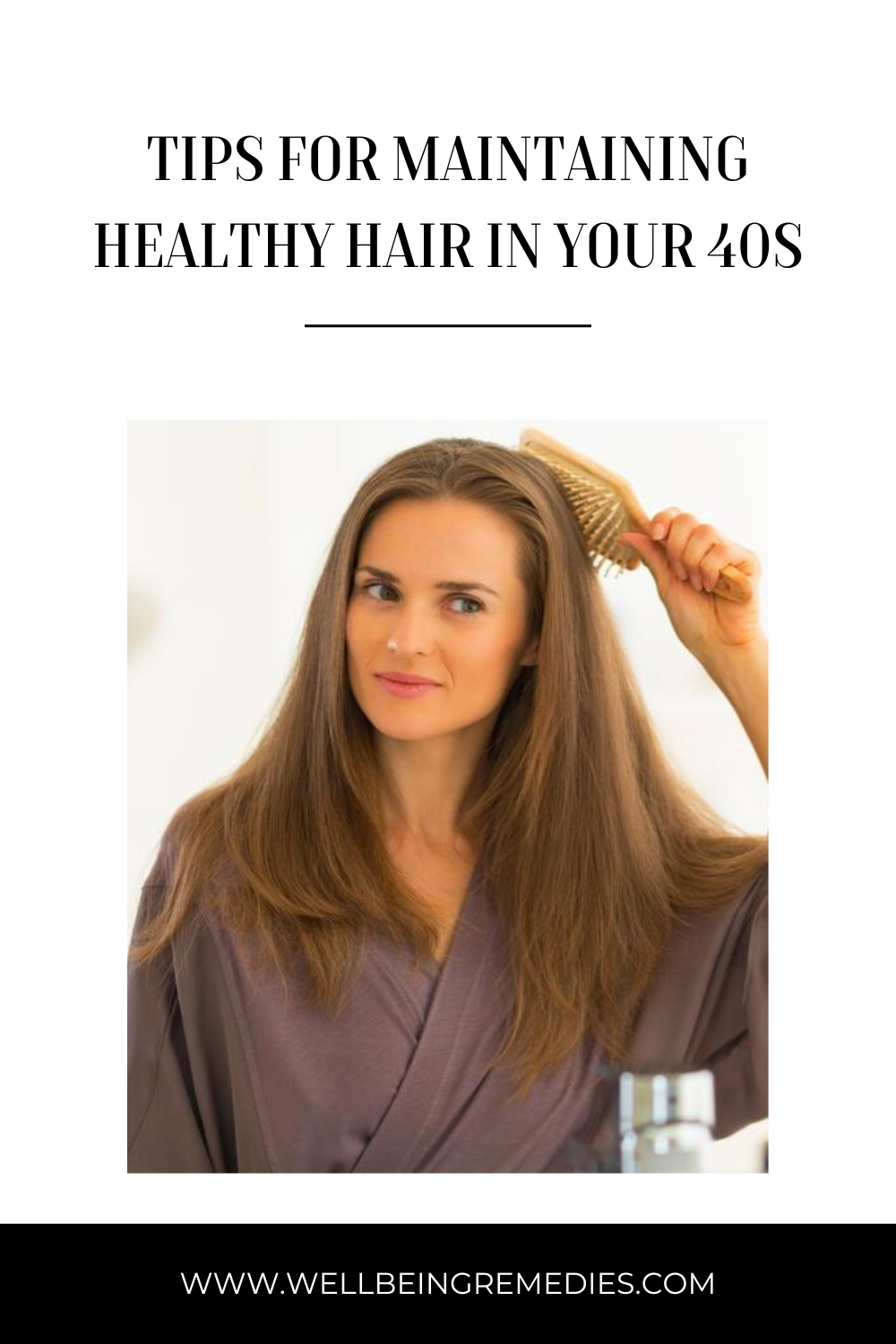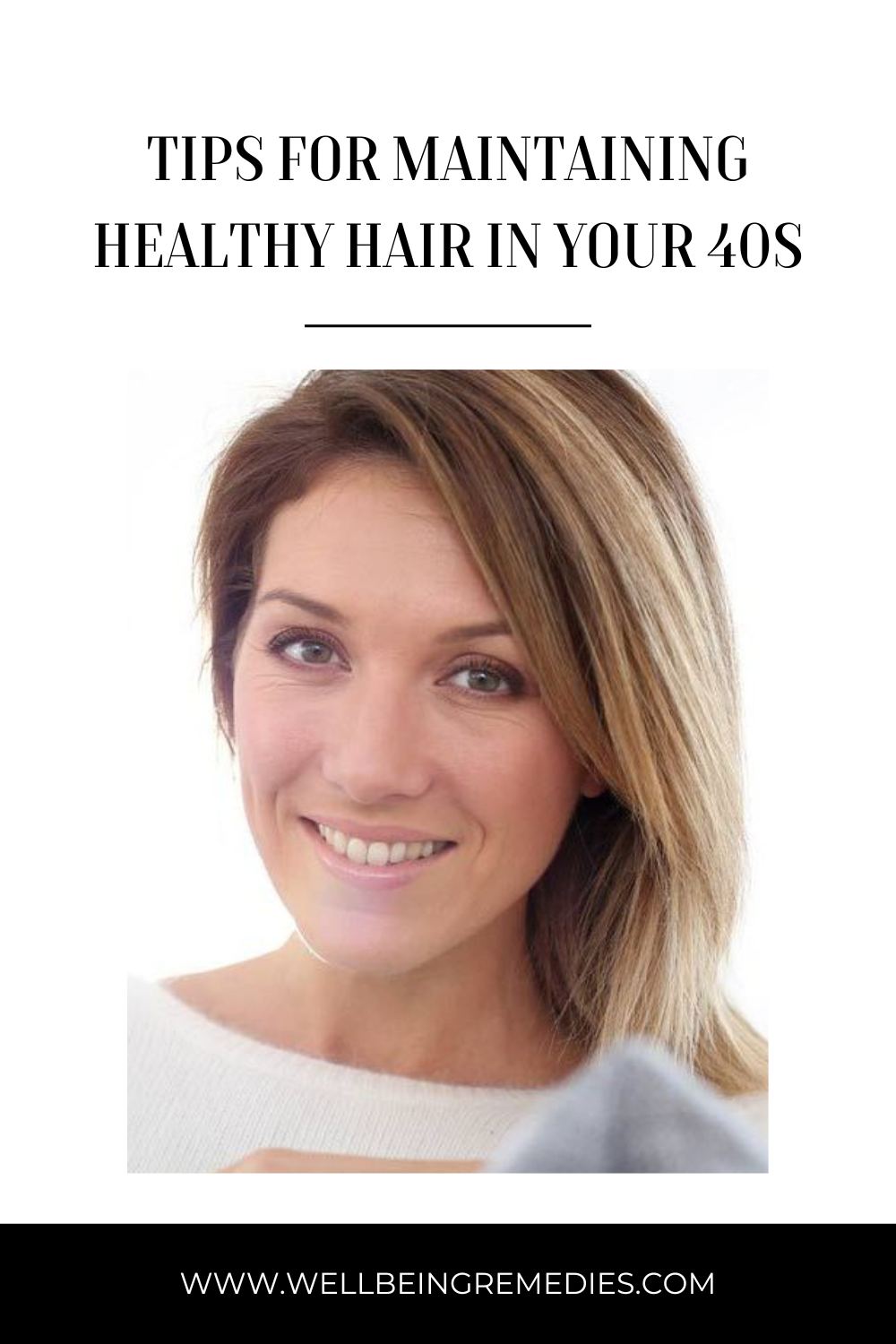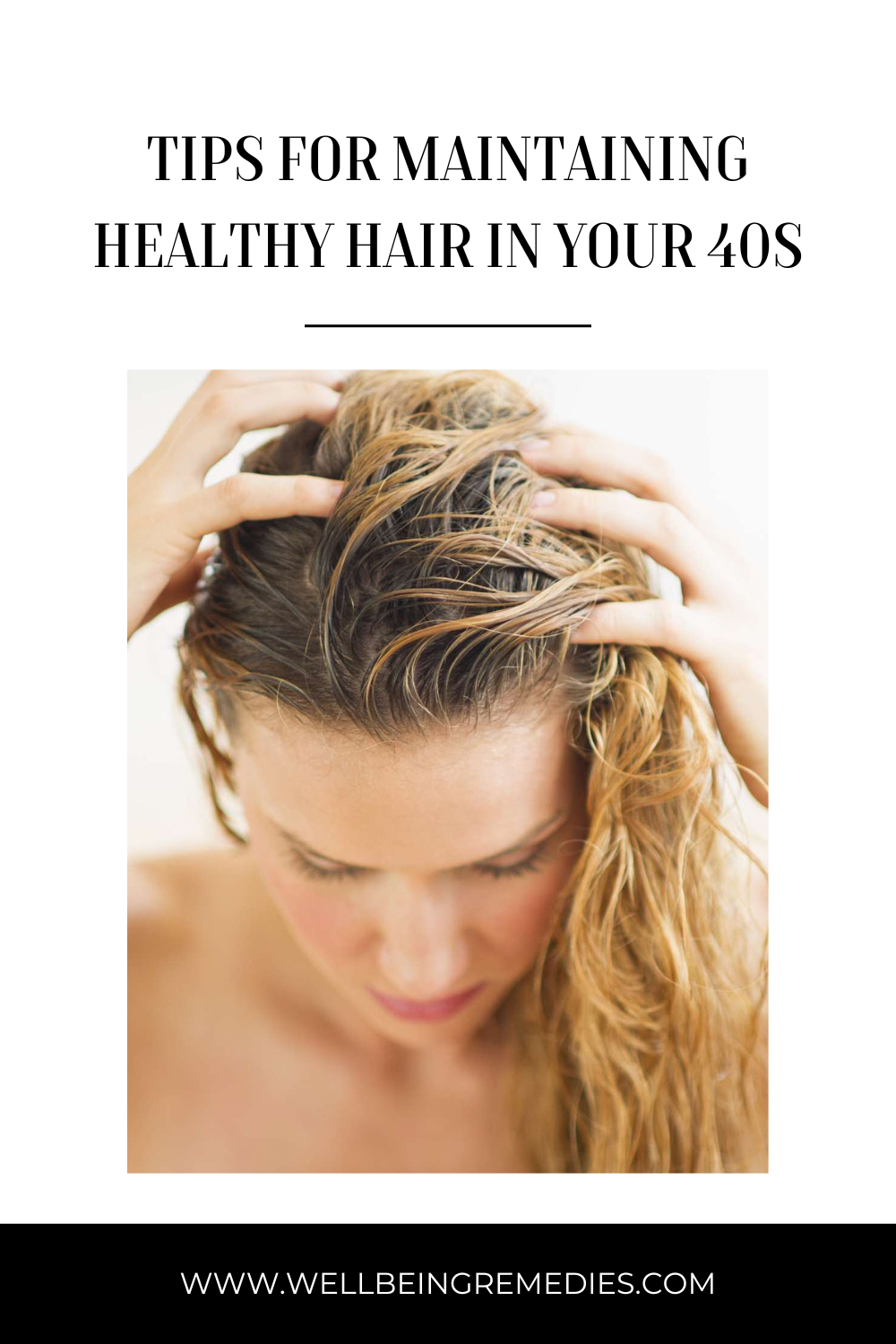Tips for Maintaining Healthy Hair in Your 40s
Hair is not just a physical aspect but also a reflection of one's inner health and vitality. As we age, our hair, like our skin and body, goes through changes. However, with the right care and attention, you can keep your locks looking luscious and vibrant well into your 40s and beyond. Here's a comprehensive guide to understanding and nurturing your hair during this significant decade of life..
Understanding Hair Changes in Your 40s
In your 40s, you may notice subtle shifts in your hair texture, which can range from increased dryness to changes in thickness and density. Additionally, common hair issues such as breakage, split ends, and scalp dryness may become more pronounced. Several factors contribute to these changes, including hormonal fluctuations, environmental stressors, and genetic predispositions. Understanding these changes is the first step toward effectively managing them.
Nutrition for Healthy Hair
A balanced diet rich in essential nutrients is vital for maintaining healthy hair in your 40s. Protein, vitamins (especially B-complex vitamins), and minerals like iron and zinc play crucial roles in supporting hair growth and strength. Incorporate foods such as lean meats, fish, leafy greens, nuts, and seeds into your diet while minimizing processed foods and excessive sugar intake.
Hair Care Routine for Your 40s
Establishing a personalized hair care routine tailored to your hair type and specific needs is essential for maintaining optimal hair health in your 40s. Choose gentle yet effective hair care products free from harsh chemicals and sulfates. Consider using moisturizing shampoos and conditioners enriched with nourishing ingredients like argan oil or keratin. Strike a balance between cleansing and hydrating your hair, aiming to wash it every 2-3 days to prevent stripping away natural oils while keeping your scalp clean.
Protective Styling Practices
Gentle styling techniques can help prevent damage and preserve the strength and elasticity of your hair. Minimize the use of heat styling tools such as flat irons and curling wands, opting for air-drying or heat-free styling methods whenever possible. Embrace protective hairstyles like braids, buns, or twists to minimize manipulation and reduce the risk of breakage.
Managing Gray Hair
Gray hair is a natural part of aging, and embracing it gracefully can be empowering. Whether you choose to embrace your silver strands or opt for coloring or camouflaging them, it's essential to care for your gray hair with products specifically formulated to enhance its shine and vibrancy. Look for shampoos and conditioners designed for gray or silver hair, enriched with ingredients like violet pigments to neutralize yellow tones and enhance brightness.
Addressing Hair Thinning and Loss
Hair thinning and loss can be distressing, but understanding the underlying causes and exploring treatment options can help restore hair health. Factors such as hormonal imbalances, genetics, and stress can contribute to hair thinning in your 40s. Consult a dermatologist or trichologist to diagnose the root cause of your hair loss and explore treatment options such as topical medications, laser therapy, or platelet-rich plasma (PRP) injections. Additionally, incorporate scalp massages and nutrient-rich hair growth supplements into your routine to promote thicker, healthier hair from the inside out.
Scalp Health and Care
A healthy scalp is the foundation for strong, beautiful hair. Keep your scalp clean and balanced by washing it regularly with a gentle shampoo and exfoliating weekly to remove buildup and promote circulation. Treat scalp issues such as dandruff or itchiness with targeted treatments containing ingredients like tea tree oil or salicylic acid. Remember to protect your scalp from sun damage by wearing hats or using hair products with UV protection when spending extended periods outdoors.
Stress Management for Healthy Hair
Stress can wreak havoc on your hair, leading to increased shedding, slower growth, and dullness. Incorporate stress-relief techniques such as meditation, deep breathing exercises, or yoga into your daily routine to promote relaxation and reduce cortisol levels, which can impact hair follicle function. Prioritize self-care activities that bring you joy and help you unwind, whether it's taking a leisurely walk in nature, indulging in a bubble bath, or enjoying a hobby you love.
Hormonal Changes and Hair Health
Hormonal fluctuations, particularly during perimenopause and menopause, can significantly impact hair health and contribute to changes in texture, thickness, and growth patterns. Adjust your hair care routine to accommodate hormonal changes by opting for hydrating products to combat dryness and nourishing treatments to support hair follicle function. Consider consulting with a healthcare provider to explore hormone replacement therapy or other interventions to manage hormonal imbalances and mitigate their effects on your hair.
Professional Hair Care Tips
Regular salon visits are essential for maintaining healthy hair in your 40s. Schedule appointments for trims every 6-8 weeks to prevent split ends and breakage, and consider incorporating professional treatments such as deep conditioning masks or keratin treatments to strengthen and revitalize your hair. When selecting a hairstylist, choose someone who understands your hair type and concerns and can offer personalized recommendations and advice tailored to your needs.
Embracing Natural Hair Texture
Celebrate your natural hair texture and embrace its unique beauty. Whether you have curly, wavy, or straight hair, learn to work with your natural texture rather than against it. Experiment with styling techniques like diffusing curls, scrunching waves, or air-drying straight hair to enhance its natural movement and definition. Embrace a low-maintenance approach to styling that emphasizes your hair's natural texture and minimizes heat and chemical damage.
Sun and Environmental Protection
Protect your hair from the damaging effects of UV radiation and environmental pollutants by taking proactive measures. Wear hats or scarves when exposed to prolonged sunlight, and use hair products containing UV filters or antioxidants to shield your strands from harmful free radicals. Consider incorporating clarifying treatments into your routine to remove buildup from environmental pollutants and restore hair's natural shine and vitality.
Hydration and Moisture Balance
Proper hydration is essential for maintaining healthy hair in your 40s. Keep your hair adequately moisturized by using hydrating shampoos and conditioners and incorporating nourishing hair masks or oils into your routine regularly. Drink plenty of water throughout the day to hydrate your body from the inside out, promoting healthy hair growth and preventing dryness and brittleness.
Exercise and Circulation for Hair Growth
Regular exercise not only benefits your overall health but also promotes circulation to the scalp, delivering essential nutrients to the hair follicles and supporting healthy hair growth. Incorporate cardiovascular exercises like jogging, cycling, or swimming into your routine to boost blood flow to the scalp and stimulate hair follicle activity. Additionally, practice scalp massage techniques to further enhance circulation and encourage hair growth.
Sleep Quality and Hair Health
Quality sleep is crucial for overall health and well-being, including hair health. Aim for 7-9 hours of uninterrupted sleep each night to allow your body time to repair and regenerate. Create a relaxing bedtime routine to promote better sleep, incorporating calming activities like reading, meditating, or taking a warm bath. Prioritize sleep hygiene practices such as keeping your bedroom cool, dark, and quiet to optimize sleep quality and support healthy hair growth.
Supplements for Hair Health
In addition to a balanced diet, certain supplements can support hair health and growth. Consult with a healthcare professional to determine which supplements may be beneficial for you based on your individual needs and health status. Common supplements for hair health include biotin, vitamin D, iron, and omega-3 fatty acids, which can help promote hair growth, strengthen hair follicles, and improve overall hair texture and appearance.
Avoiding Overprocessing and Damage
Excessive chemical treatments and heat styling can damage your hair, leading to breakage, split ends, and dullness. Minimize overprocessing by avoiding frequent coloring, bleaching, or perming, and opt for gentler alternatives like semi-permanent dyes or ammonia-free formulas when coloring your hair. Limit the use of heat styling tools and always use a heat protectant spray before applying heat to your hair to prevent damage and maintain its integrity.
Community Support and Resources
Joining online hair care communities can provide valuable support, advice, and resources for maintaining healthy hair in your 40s. Connect with others who share similar hair concerns and learn from their experiences and insights. Take advantage of online resources such as blogs, forums, and social media channels dedicated to hair care tips, tutorials, and product recommendations to stay informed and inspired on your hair care journey.
Conclusion
Maintaining healthy hair in your 40s requires a holistic approach that encompasses nutrition, hair care, lifestyle habits, and self-care practices. By understanding your hair's unique needs and implementing targeted strategies to support its health and vitality, you can enjoy luscious locks that radiate confidence and beauty at every stage of life. Commit to integrating these tips into your daily routine and embrace the journey of nurturing and caring for your hair with love and dedication. Here's to healthier, more vibrant hair in your 40s and beyond!









